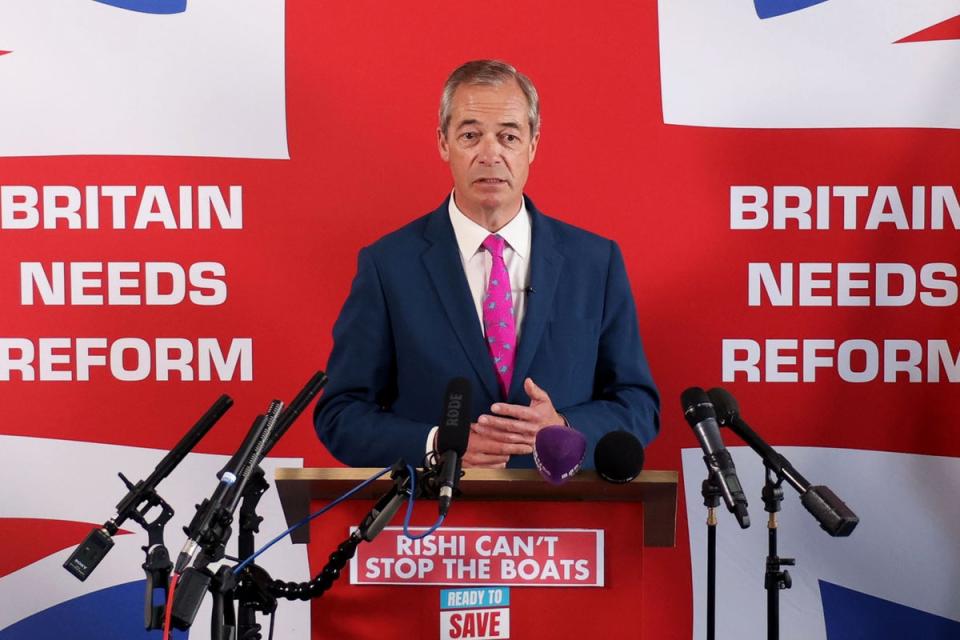BBC apologises to Nigel Farage after broadcaster slams his ‘inflammatory language’

The BBC has apologised to Nigel Farage after breaking its own impartiality rules by accusing him of using “customary inflammatory language”.
The incident took place when the former Brexit Party leader defended describing European migration as an “invasion” at a Reform UK press conference.
In the speech, he said what was once a “trickle” of migrants is now a “flood” and claimed a “large influx of young males” has had “disastrous” effects in the Swedish city of Malmo.
This prompted BBC journalist Geeta Guru-Murthy to say that Farage was using “customary inflammatory language” when the channel cut away from the conference.
“Nigel Farage with his customary inflammatory language there at a Reform UK press conference,” she said.
“He declined to stand for a seat. But we will have more on what Farage is saying, if you want to follow it more, just follow the QR code.”
Farage then demanded an apology from Guru-Murthy for her choice of words.

He did so by sharing a clip of the incident on Twitter/X and questioning: “What happened to impartiality [Guru-Murthy] and [BBC press office]?
“BBC News presenter, Geeta, just accused me of ‘customary inflammatory language’ when I was quoting Polish PM Donald Tusk at a press conference.”
In line with the BBC’s commitment to political neutrality, the journalist then apologised two hours later.

Guru-Murthy said: “Now, an apology. Earlier today we heard live from Nigel Farage, speaking at that election event we just saw.
“When we came away from his live speech, I used language to describe it which didn’t meet the BBC’s editorial standards on impartiality. I’d like to apologise to Mr Farage and viewers for this.”

This is not the first time that the broadcaster has found itself in hot water with the Reform Party and it also had to apologise in March for describing the organisation as “far-right” in an article.
“This sentence was subsequently removed from the article as it fell short of our usual editorial standards,” the BBC said at the time.
“While the original wording was based on news agency copy, we take full responsibility and apologise for the error.”
The Independent has reached out to the BBC for further comment.


